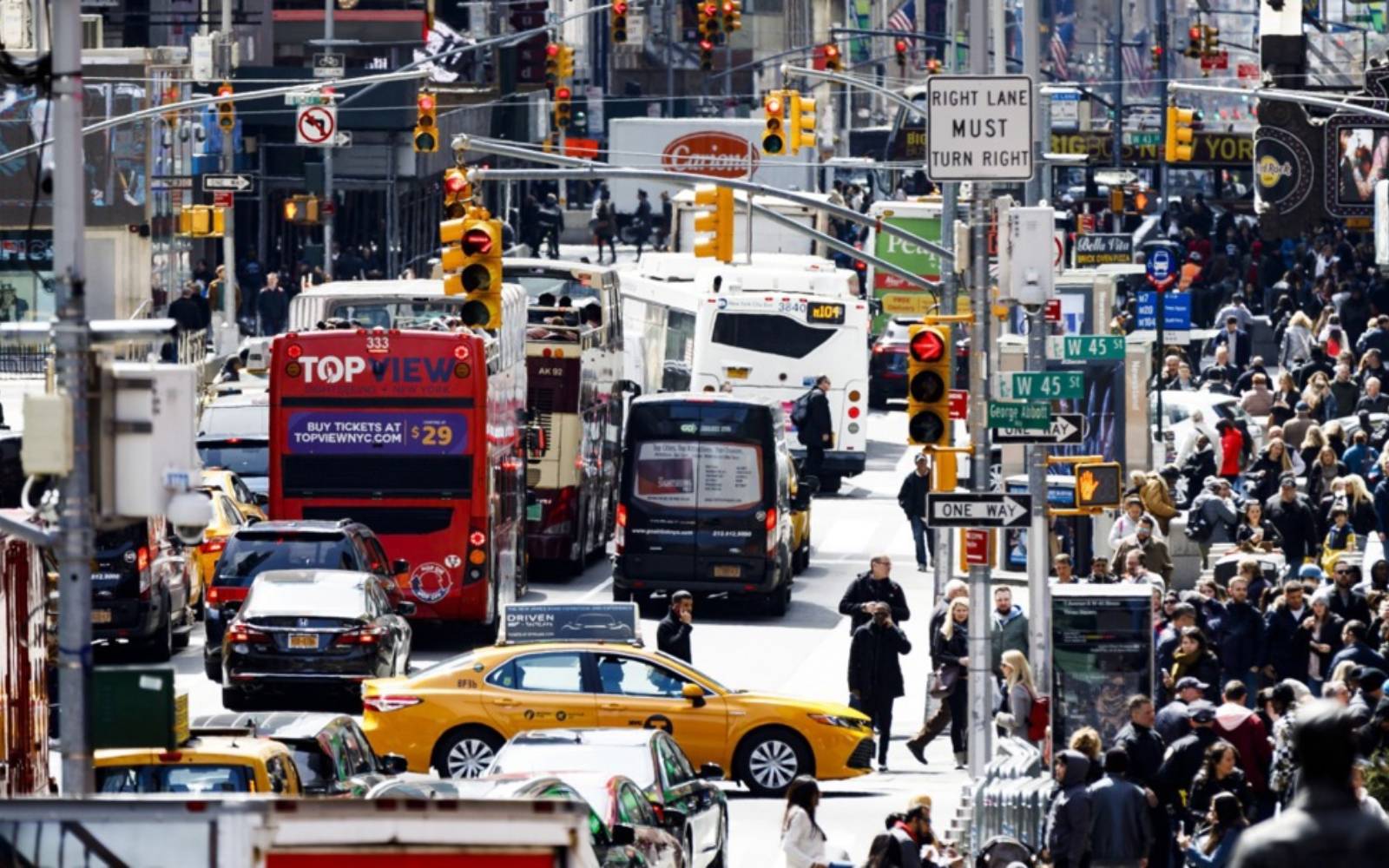As New York City prepares to implement a controversial congestion tax, many residents and commuters debate whether this is useful. As this tax is designed to alleviate traffic and pollution in Manhattan’s business district, many think it will create more congestion. This tax has mixed feedback as well as praise.
This congestion tax will impose fees of nine dollars a day during peak hours and two dollars and twenty-five cents on less busy days for drivers entering Manhattan below 60th street during peak hours. According to the Metropolitan Transportation Authority, this tax’s estimated revenue is 1 billion dollars, which will go toward the city’s public transportation system. People argue that this initiative will decrease traffic and improve the air quality from pollution.
Evie Nessler (’26) says, “This taxation seems like it is not going to relieve traffic and create more, as well as it does not make sense because if other people cant pay that tax every day they have to use public transportation.”
According to Georgetown Law, the US Department of Transportation has estimated that air pollution can decrease due to lower numbers of cars in the area and smaller accounts of stop-and-go traffic. This will lead to less use of gas.
This taxation has created massive amounts of lawsuits underway from New York’s “Green Party”, and conflicts arising with New Jersey because of the traffic that will erupt there and in surrounding other new cities.
Embed from Getty Images
The action being taken has spread to other cities, leading to Tampa being a possible city to incorporate the congestion tax into the citizen’s daily life. “Tampa’s absence of adequate public transportation has resulted in car-dependent infrastructure,” said USF news editor Michael Mardones. Tampa would not benefit as much as New York with this taxation.
Additionally, Tampa does not have as much public transportation as New York City, with many subway and train stations. Tampa residents primarily use scooters, e-bikes, and regular bikes, with no forms of long transportation available.
Maddy Hughes (’26) adds, “I don’t think this tax would come to Tampa because it is a city that mainly uses cars for transportation, and does not have as large of a population as New York City, but if the tax did come to Tampa I would not want to pay it.”
While New York’s congestion tax has sparked many debates on national transportation, its possibility to spread to other states is uncertain. As of now, Tampa locals can observe New York’s tax and the uprising arguments following this decision. Whether or not Tampa follows New York’s steps determines whether the cities need to limit congestion and environmental stability.
View this post on Instagram









